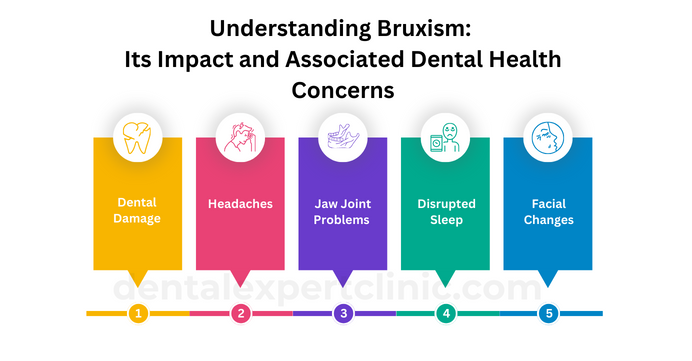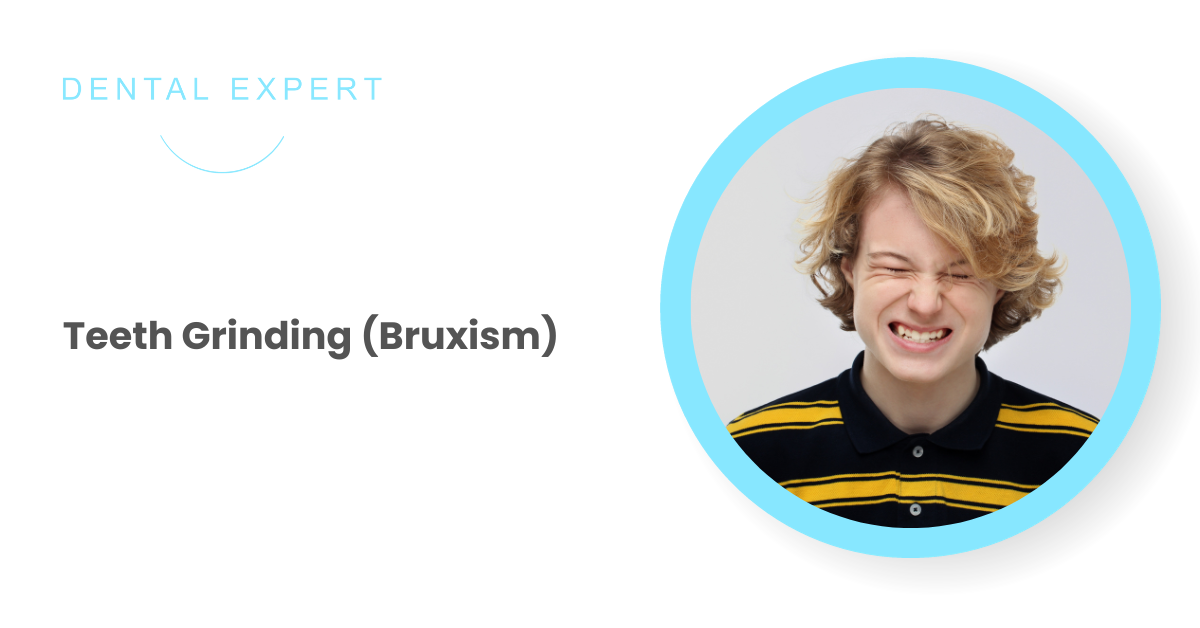Teeth grinding, also known as bruxism, can be a challenging condition that affects both your dental health and overall well-being. This involuntary habit often occurs during sleep or even when awake. In this blog post, we’ll explore the causes of bruxism and offer practical tips for managing and alleviating this condition.
Understanding Bruxism
Bruxism is characterized by the grinding, clenching, or gnashing of teeth, which can lead to various issues, including:

Dental Damage
Prolonged bruxism can wear down tooth enamel, leading to tooth sensitivity, fractures, toothaches and even tooth loss.
Headaches
The intense pressure exerted while grinding can trigger headaches and jaw pain.
Jaw Joint Problems (TMD’s)
Bruxism may contribute to jaw joint disorders (TMD’s), causing jaw pain and dysfunction.
Disrupted Sleep
Teeth grinding can disrupt your sleep, leading to daytime fatigue and other health problems.
Facial Changes
Grinding of teeth leads to loss of facial height and results in older looking appearance.
Teeth grinding
Can be a challenging condition, but with the right strategies and professional guidance, you can manage it effectively.
Also Read: Benefits Of Teeth Scaling – Is Scaling Good for Teeth?
Some options for managing teeth grinding include
Seek Specialist / Professional Help
If your bruxism is persistent and causing severe dental or health issues, consult a bruxism dental specialist, like Dr. Denzil Albuquerque. They can recommend additional treatments, such as medications, Botox injections, or dental procedures to correct misaligned teeth or other structural problems.
Dental Examination
Schedule a visit to your dentist, Dr. Denzil Albuquerque, for a thorough examination. They can identify early signs of bruxism, such as tooth wear, and recommend appropriate treatments.
Custom Mouthguards
Dentists often recommend custom-made mouthguards or splints to protect your teeth and prevent further damage. These are typically worn during sleep.
Oral Hygiene
Maintain proper oral hygiene to reduce the risk of dental problems associated with bruxism. Regular brushing and flossing are essential.
Stress Management
Since stress and anxiety can exacerbate bruxism, stress-reduction techniques like meditation, deep breathing exercises, and yoga may help.
Caffeine and Alcohol Moderation
Reduce your consumption of caffeine and alcohol, as they can exacerbate teeth grinding in some individuals.
Jaw Exercises
Perform gentle jaw exercises to relax the muscles. Your dentist or a physical therapist can provide guidance on these exercises.
Limit Chewing Gum
Chewing gum can contribute to jaw fatigue and increase the risk of bruxism. Avoid excessive gum chewing.
Relaxation Techniques
Explore relaxation techniques such as warm baths, soothing music, or reading before bed to help you unwind and reduce night time grinding.
Sleep Improvement
Create a sleep-conducive environment and stick to a regular sleep schedule to ensure you get adequate rest.
Dietary Adjustments
Certain foods may exacerbate bruxism in some people. Consider a diet low in acidic or spicy foods before bedtime.
By addressing the root causes and adopting the right steps, you can significantly reduce the impact of teeth grinding on your dental health and overall well-being. Remember that seeking timely treatment and maintaining a proactive approach are key to living a more comfortable, teeth-grinding-free life.
Dr. Denzil Albuquerque (BDS, MDS, FOFP-USA), is a specialist in bruxism. jaw pain, TMJ’s and headache management. He has completed his fellowship in Oro-Facial pain, Headaches and Dental Sleep Medicine from the prestigious Roseman University, USA.
Schedule an appointment now at Dental Expert or request an online consultation with Dr. Denzil Albuquerque for professional advice on the management of bruxism.

